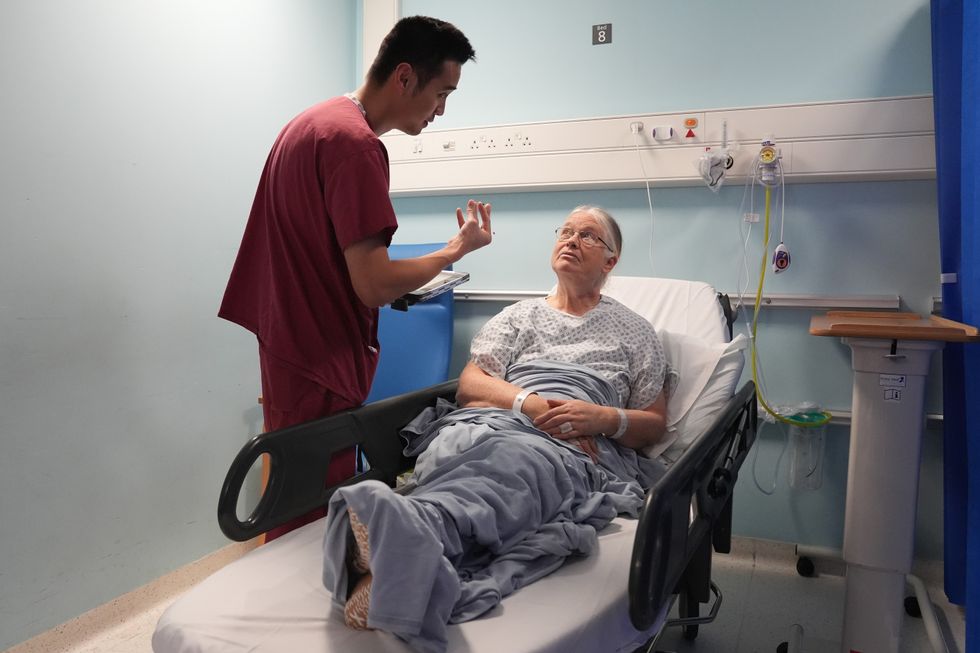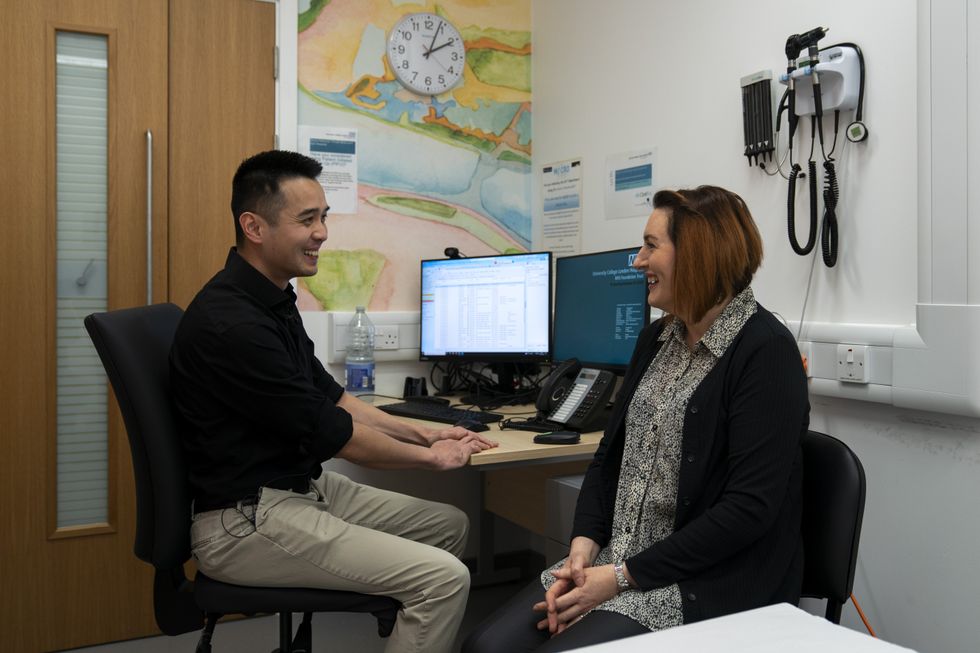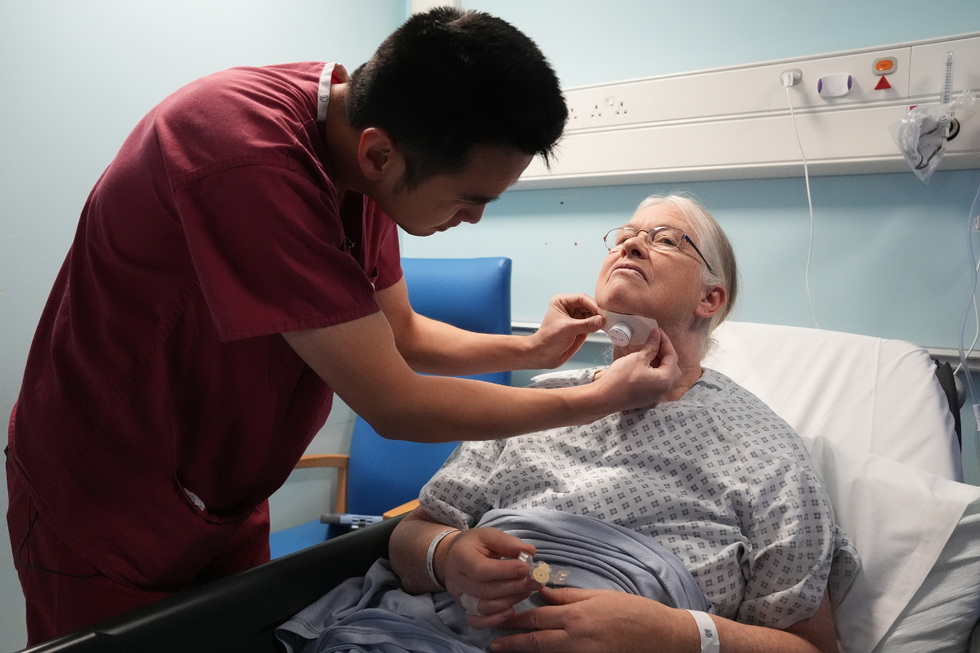Groundbreaking new app-powered tongue implant could zap millions of British snorers into a good night's sleep
Health Secretary Wes Streeting MP says there's no beating around the bush with the NHS
Experts hope they can roll out the treatment nationally
Don't Miss
Most Read
Trending on GB News
A revolutionary app-controlled implant that zaps the tongue to help people breathe better at night has been fitted in UK patients for the first time.
The groundbreaking device, which could help millions of Britons who suffer from sleep apnoea and snoring, was implanted at University College London Hospitals NHS Foundation Trust (UCLH) this month.
The three-hour procedure involves fitting the Genio Nyxoah implant, which stimulates nerves controlling tongue muscles to keep airways open during sleep.
Around eight million people in the UK are affected by sleep apnoea, with symptoms including loud snoring and repeatedly not breathing during sleep.

Natalie Boller, 63, has a Genio Nyxoah bilateral hypoglossal nerve stimulator
The implant works by stimulating the hypoglossal nerve, which controls tongue muscles, through a small device placed under the chin during surgery.
Patients wear an external chip attached to their chin with an adhesive patch before sleeping, which can be removed and recharged during the day.
The intensity of the nerve stimulation can be adjusted using a smartphone app, allowing patients to monitor their sleep quality. Surgeons make a six cm incision below the chin and use a microscope to precisely locate the nerves that control tongue movement.
UCLH is the first UK centre to offer patients a choice between this system and an alternative called the Inspire implant.
LATEST DEVELOPMENTS

Olivia Rushton speaks with consultant UCLH consultant ENT and sleep surgeon Ryan Chin Taw Cheong about the results of the sleep study
PA
One of the first patients to receive the implant was Natalie Boller, 63, a mother of six from East Sussex who has battled sleep apnoea for a decade.
"I've had sleep apnoea for 10 years now and everything I've tried has failed. I was very hopeful about the surgery," she told reporters.
Despite initial tiredness, Boller felt better within days of the procedure. "They implanted it under the muscle, it's a very delicate surgery. They didn't damage any nerves, I can still wiggle my tongue and swallow," she said.
Boller is now looking forward to being more active, including hiking, cycling and looking after her two grandchildren once the device is activated. To be eligible for the implants, patients must have moderate to very severe sleep apnoea, a body mass index below 35, and must have tried using a CPAP machine first.

Natalie Boller, 63, has a Genio Nyxoah bilateral hypoglossal nerve stimulator implant fitted
PA
The device offers an alternative to traditional CPAP machines, which require wearing an uncomfortable mask connected to an air pump overnight.
Consultant ENT and sleep surgeon Ryan Chin Taw Cheong said: "I'm very optimistic about the way things are moving, and I'm hoping that we will be able to make this technology and make this implant more available for the right patients."
The recovery time has been described as "incredible" compared to other sleep surgeries, with patients pain-free within 24-48 hours.
Olivia Rushton, 48, who received the alternative Inspire device in June, saw her sleep disruptions drop from 65 to 25 times per hour. The technology represents a major breakthrough for the estimated 80 per cent of adults with sleep apnoea who remain undiagnosed.
The NHS trust hopes to make the treatment more widely available to suitable patients.








